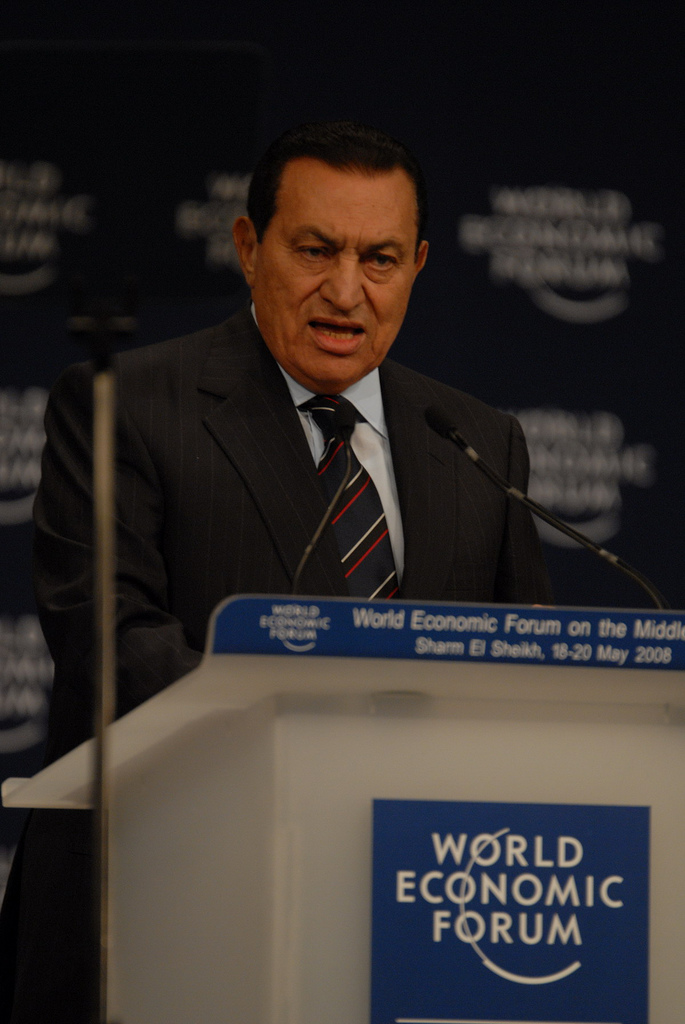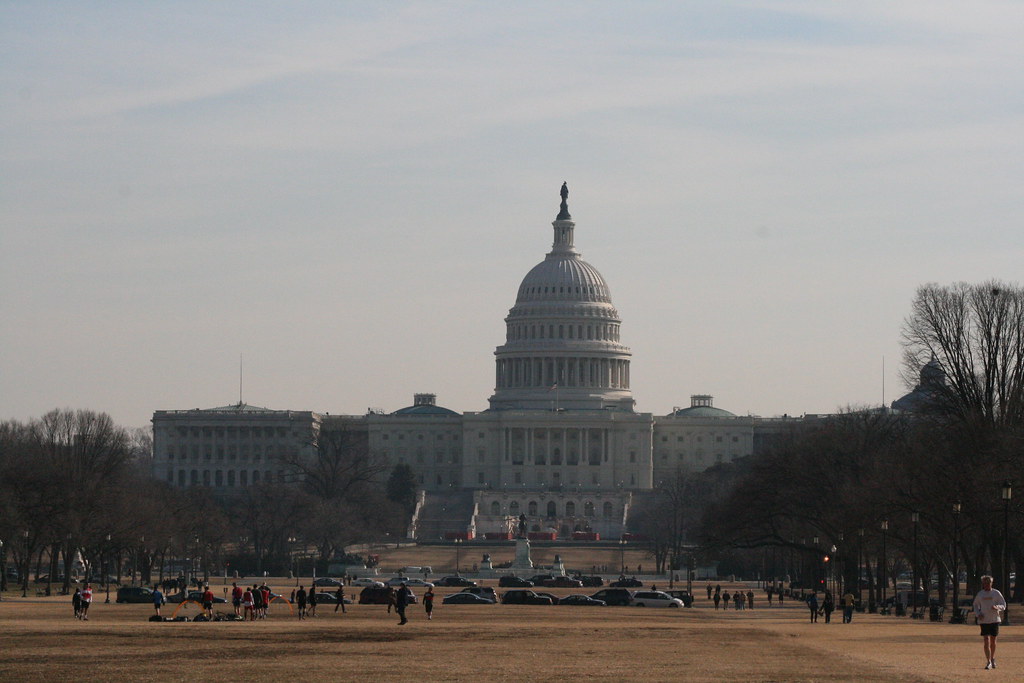
Promoting and defending human rights has long challenged governments and policymakers. Some hardly bother and others give it their all. All governments balance their interests with their values. The United States has wavered back and forth between vocal and aggressive “democracy promotion” and realpolitik, often within the same administration. Most recent administrations have agreed on the importance of promoting human rights in American foreign policy. Methods have differed and emphases shift constantly.
After eight years of the George W. Bush administration and its “Freedom Agenda” — an effort to promote democratic reform, especially in the Middle East — many Americans and others hoped for a decisive change of direction. Many observers saw American efforts to promote democracy as a smokescreen for more sinister, hegemonic ends. The rhetoric of democracy and freedom was tied to the increasingly unpopular invasion of Iraq, for better or for worse. Many wondered how excesses such as the treatment of prisoners at Guantanamo Bay and Abu Ghraib could be reconciled with American pronouncements about free elections and the rule of law. How could the United States advocate free elections while allying itself closely with authoritarian countries like Saudi Arabia and Egypt?
Barack Obama would bring a new beginning. At least, that was the impression he gave. During his campaign many read his foreign policy views as pragmatic, prudent and transformational. He would be able to bridge gaps between Americans and Muslims, Africans and Asians. Much of the advice thrown his way urged him to break with Bush’s style of promoting democracy; the neoconservative hypothesis that more democracy would lead to less terrorism had to be abandoned. The principle was fine — it was the lecturing and exceptionalism that were rotten.
The Obama administration set out with an ambitious outreach program to the Muslim world, making a series of highly publicized efforts at improving perceptions of the United States and its agenda. There was his Nawrooz greeting on the occasion of the Iranian New Year in Feburary, 2009; then came his famous Ankara speech on an official visit to Turkey. There he impressed upon his hosts in the Turkish parliament: “the United States is not at war with Islam.” The U.S. relationship with Muslim countries would be “based upon mutual interests and mutual respect.” Perhaps more memorable was his June speech at Cairo University. Derided by critics on the political right as part of an apology tour, Obama said explicitly: “No system of government can or should be imposed by one nation by any other,” adding: “That does not lessen my commitment … to governments that reflect the will of the people.” The President was clear that he would not, however, be bound to ideology: “there is no straight line to realize this promise,” he said.
“Obama’s new rhetoric was welcomed. There was hope for a counterrevolution in the status quo of United States foreign policy,” said Nasser Weddady, Civil Rights Outreach Director of the American Islamic Congress. Many hoped that the United States would take a more balanced and effectual line on the Israeli-Palestinian issue. Others hoped the Administration would be more forthright in its support for democratic reform and the rule of law in predominantly Muslim countries, especially in the Middle East.
The Israeli-Palestinian conflict sits at the center of many troubles in the Middle East. There the American position can be extremely powerful. Most basically there is a desire to maintain stability in the region overall, secure the flow of oil to world markets and to maintain Israel’s “qualitative military advantage” over its Arab neighbors, and to do all of this without upsetting anyone unnecessarily. In these areas, American, Israeli and Arab interests often intersect, producing a complex web of military and political cooperation. It often means putting aside human rights abuses in the interest of political expediency. American administrations have repeatedly made human rights a part of their agenda in the region, if only rhetorically. Rising expectations for accountability and the ability of civil society and independent citizens to expose abuses and voice demands on the Internet and elsewhere have helped to change the way many look at this arrangement.
Perhaps the best example is Egypt. President Hosni Mubarak has strategically positioned his country as a key to Middle East diplomacy. U.S. – Egyptian relations have been especially close since the Camp David Accords in the late 1970s. Egypt plays the role of a mediator in the Arab and Palestinian-Israeli conflict as one of only two Arab countries with diplomatic relations with Israel. The U.S. – Egyptian relationship is one of the most critical in the region. But Egypt is also thoroughly authoritarian, and many feel that the country’s relations with Israel and alliance with the U.S. are against the popular will. Many Egyptians and other Arabs feel the Americans have been unfair in dealing with the Palestinian issue. Much controversy has swirled around the administration’s handling of human rights issues in the Arab countries, and in Egypt in particular.
Obama has been criticized on several fronts. Egypt had repeatedly asked for a new shipment of F-16 fighter jets to upgrade its air force, but the Bush administration denied its requests, citing Egypt’s poor human rights record. Obama decided this past June to fulfill the request and twenty-four new Lockheed Martin F-16 fighter jets were sold to Egypt. The sale was estimated to have generated over $1 billion in revenue. It was unclear if this represented an ideological or tactical break with the Bush administration’s policy.
The Bush-era policy frequently linked progress on human rights demands with other areas of bilateral cooperation, straining U.S. – Egyptian relations. Egyptian leaders felt marginalized by the U.S. and that the Egyptian role in the region was suffering more than gaining from its close association with the U.S. Many saw the President’s speech in Cairo and its moves to please Egypt as a way of mending those official ties. The “new beginning” President Obama spoke about was meant especially for President Mubarak, whose relations with the U.S. have improved since Obama took office.
Everyone is not pleased, though. Egypt’s involvement with the construction of an iron wall on its border with Gaza to prevent arms smuggling through the tunnel system has caused many Egyptians to believe that their government has abandoned the Palestinian cause. Issandr El Amrani, a political analyst and journalist based in Cairo, notes that there is a consistently negative perception of the relationship the U.S. has with Egypt.
To start, there is Gaza and how Egypt’s government has dealt with the relief efforts there in the wake of Operation Cast Lead. Though many Egyptians feel strong sympathy for the Palestinians in Gaza, the Egyptian government has closed its border with Gaza. The government has also taken harsh measures against pro-Palestinian demonstrators in Egypt. Palestinians have tried to smuggle goods and weapons across the border. Cairo’s response has been to build an underground wall, a move that has angered many Egyptians.
“As the Gaza wall is erected, it is perceived to be evolving into a Gaza blockade. Gaza then has a sense of hopelessness for possible reconstruction, which turns into a fight for humanity and human rights becomes the central argument. It is perceived that the United States working with Egypt is blocking the last light into Gaza,” said El Amrani.
According to El Amrani, the appointment of Hillary Clinton as Secretary of State reinforced uneasiness among some Arabs about America’s stance on the Arab-Israeli conflict. “Secretary Clinton […] has not offered a new style to the post. Personality matters in diplomacy […] Clinton is not seen as a positive person and is believed to have a staunch pro-Israeli stance,” said El Amrani.
Weddady shares a similar sentiment. Though acknowledging the efforts outlined in Clinton’s speech on human rights at Georgetown University, he argues there has been a diffusion of executive power in the State Department. The President has appointed multiple Special Envoys to various conflict zones. George Mitchell is the administration’s Special Envoy to the Middle East. Mitchell’s appointment was meant to highlight the Palestinian issue as being at the top of the administration’s agenda.
“When you hear that Kissinger met with Nixon everyday, while Clinton reports she meets with the President once a week, it makes one wonder about the administration […] This is especially true when there is word on the ground that it is difficult to file and execute human rights initiatives because of a lack of coherence,” said Weddady.
Michael Posner, Assistant Secretary of State for Human Rights and Labor, strongly disagrees. “If Kissinger managed to meet with the President everyday, then he was not going to talk about human rights. I think there is a strong relationship between the Secretary and the President. I think generally the relationship is very good,” he said in an interview with the Review.
Recently, Internet freedom has been at the top of Posner’s agenda. Since 2007, Posner has been working on a project to protect the right of expression on the Internet through the “Principles on Freedom of Expression and Privacy,” which outlines how online companies can work within the framework of international human rights law.
Posner sees the Obama administration’s approach as an improvement over previous efforts. “Egypt has a very vibrant journalistic community. The policies of the Bush administration made it difficult for the advocacy of human rights with policies such as Guantanamo and torture and the like, but this administration, I think, is taking a very strong stance on promoting human rights.”
Posner has been vocal and visible, holding a press conference in Cairo in mid-January at which he discussed recent sectarian violence in Egypt. Posner urged a “dual approach” saying “in the past these cases have been dealt with by a process of reconciliation [. . . ] it’s not enough. There need to be prosecutions, there needs to be a break in a sense of impunity, and there needs to be justice.” The events in question took place in Nagaa Hammadi, where clashes left several Christian Egyptians dead on Christmas Eve, setting off a wave of violence between Christians and Muslims. Christian Copts regularly complain of religions discrimination in mostly Muslim Egypt. The Egyptian government arrested bloggers and activists who went to the town to investigate.
Just weeks before that, the Washington Post published a spirited editorial questioning the American Ambassador in Cairo’s statement that “In my time in Egypt, I have noticed that many Egyptians are very free to speak out.” The Post criticized the administration for cutting funding for democracy, calling its Egypt policy “a shame.” Many rights campaigners initially held a “generally positive skepticism” about the new administration, as El Amrani described it. Skepticism is gradually eclipsing optimism, he said.
It is difficult for any government to align its strategic and moral priorities. The United States has many vested interests around the world, and it cannot please everyone. One year in, the Obama administation’s approach to human rights appears to be shaped by political realities that serve to check even the finest rhetoric and most deliberate action.



